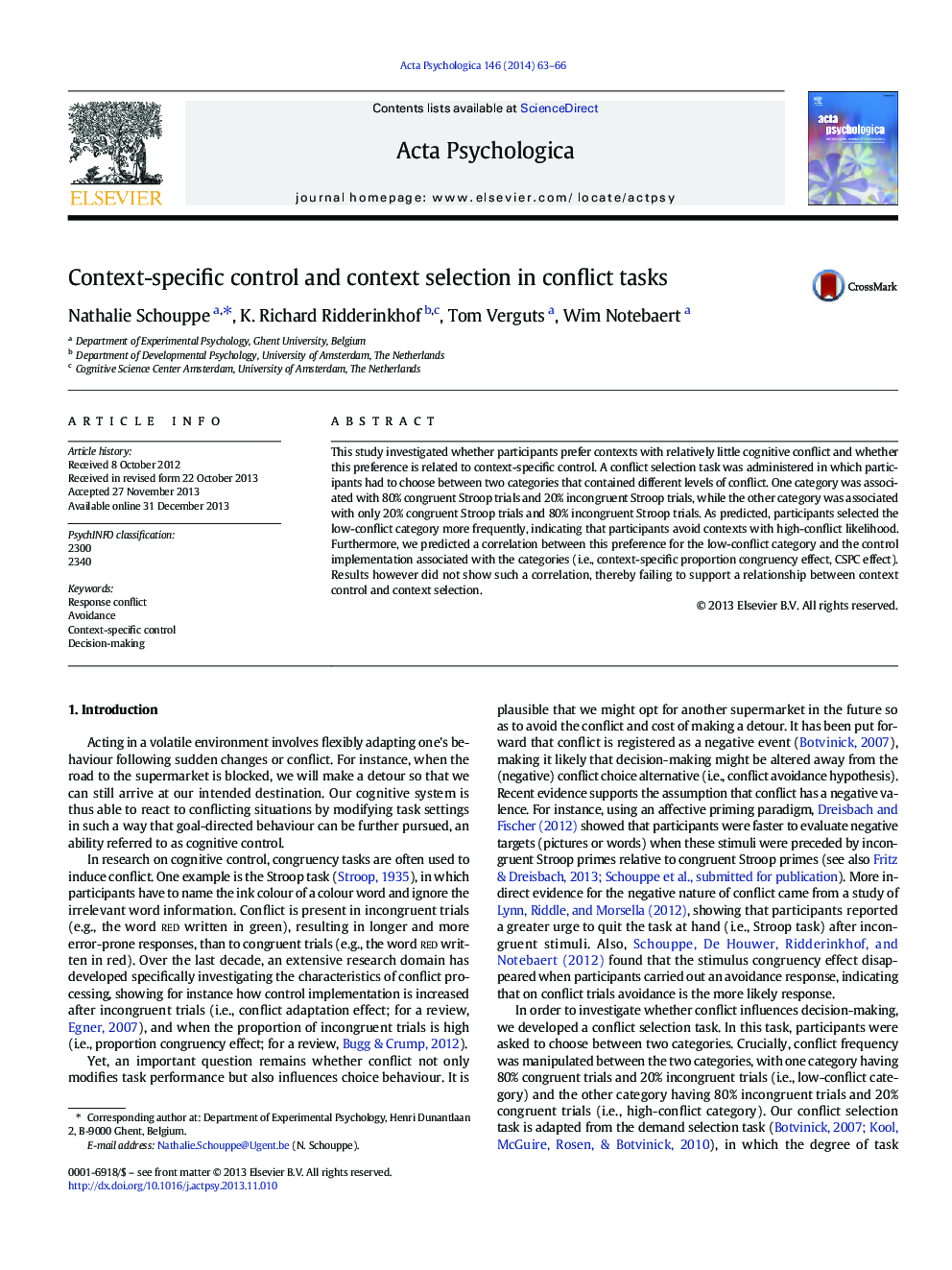| Article ID | Journal | Published Year | Pages | File Type |
|---|---|---|---|---|
| 7278011 | Acta Psychologica | 2014 | 4 Pages |
Abstract
This study investigated whether participants prefer contexts with relatively little cognitive conflict and whether this preference is related to context-specific control. A conflict selection task was administered in which participants had to choose between two categories that contained different levels of conflict. One category was associated with 80% congruent Stroop trials and 20% incongruent Stroop trials, while the other category was associated with only 20% congruent Stroop trials and 80% incongruent Stroop trials. As predicted, participants selected the low-conflict category more frequently, indicating that participants avoid contexts with high-conflict likelihood. Furthermore, we predicted a correlation between this preference for the low-conflict category and the control implementation associated with the categories (i.e., context-specific proportion congruency effect, CSPC effect). Results however did not show such a correlation, thereby failing to support a relationship between context control and context selection.
Related Topics
Life Sciences
Neuroscience
Cognitive Neuroscience
Authors
Nathalie Schouppe, K. Richard Ridderinkhof, Tom Verguts, Wim Notebaert,
